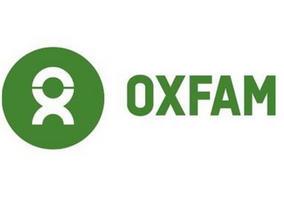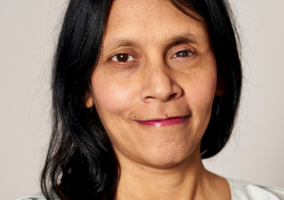Oxfam GB has reported an income of £401m, an increase of £27.6m on the previous year, in its recently published accounts.
The reported rise comes as workers recently won an improved pay award after taking part in the first strike action in the organisation’s history.
Unite reported the majority of Oxfam workers secured a 6% pay increase and lump-sum payments of £2,300.
Unite general secretary Sharon Graham said: “Unite’s Oxfam members are to be congratulated in their refusal to back down and their refusal to take no for an answer. Their hard-fought campaign has resulted in an improved pay offer, an improved lump-sum payment and better terms and conditions. Yet again, this shows there is power in a union.”
Meanwhile, Danny Sriskandarajah stepped down as CEO at the end of December 2023, after five years in the role, and is set to be replaced by the outgoing CEO of ActionAid UK, Halima Begum.
Fundraising increase
For the financial year to March 2023, Oxfam GB’s total income in the year was £401m, an increase of £27.6m on the previous year’s income.
The largest driver of this rise was income received from governments and other public authorities, increasing by £15.4m year on year from £141m in 2021-22 to £156m in 2022-23.
Gross income from retail operations increased by £7.7m from £90.3m in 2021-22 to £98.0m in 2022-23.
In 2022-23, income from donations and legacies increased to £143.1m, compared with £138m in 2021-22.
In the year, 247,000 people regularly gave, raising £41.9m, and Oxfam received £25.2m from public donations, appeals and fundraising events.
Waterstones raised over £825,000 for Oxfam’s Ukraine Humanitarian Appeal through the ‘Read for Ukraine’ campaign.
Glastonbury donated 10 pairs of tickets with once-in-a-lifetime experiences to support the DEC Türkiye-Syria Earthquake appeal. In three weeks, the Crowdfunder prize draw raised £1.04m.
In 2022-23, the festival team and over 6,000 stewarding volunteers, raised over £1m.
Oxfam received 200 complaints related to marketing and fundraising activity during 2022-23 compared to 142 in the previous year.
“The rise in complaints is related to an increase in face-to-face fundraising activity following the relaxation of Covid-19 restrictions,” reads the report.
Retail operating costs rise
“However, the sharp rise in retail operating costs, particularly utility costs, saw net contribution from retail fall from £21.6m in 2021-22 to £16m in 2022-23,” the accounts add.
“Our expenditure in 2022-23 rose from £329m to £361m, an increase of £31.8m.
“Our spend on development projects rose by £21.7m to £127m while our spend on humanitarian projects fell back slightly to £121m, reflecting the greater freedom to work on development projects in the first year free of lockdowns since 2019-20.”
The charity also saw increases in costs relating to trading activities, which rose to £82m, “which again illustrates the impact of Oxfam’s shops being open for the full financial year for the first time since 2018-19, together with increasing retail costs, especially relating to utilities”.
Staff and volunteers
As at 31 March 2023, Oxfam employed 4,132 staff compared with 4,157 staff employed at 31 March 2022.
The representation of women in Oxfam’s total workforce was 51.2% – compared to 51.3% reported at 31 March 2022.
The gender pay gap for April 2022 gave a median pay gap of 2.2% (a decrease from 4.6% in April 2021) and a mean of 5.3% (compared to 8.1% in April 2021).
Its pay gap report shows 11.2% of staff identified as BIPOC and, based on the available data, the overall ethnicity pay gap was –28.6% median and –11.6% mean compared to -32.8% median and 8.9% mean in 2021.
“These figures suggest that, of those individuals who submitted their data, the average pay for staff identifying as BIPOC was higher than the average pay for those identifying as white,” it adds.
The report also shows 9.6% of staff identify as LGBTQIA+ and the overall LGBTQIA+ Pay Gap was 13.3% median, 10.8% mean.
Taken together, this data suggests that the average pay for those identifying as LGBTQIA+ was lower than the average pay for those not identifying as LGBTQIA+.
“This is concerning and we remain committed to improving the experience and progression of staff identifying as LGBTQIA+ within Oxfam,” it reads.
The report states: “Without tackling systemic racism around the world, we cannot end global poverty. Systemic racism makes it harder for people to earn a living, feed their children and put a roof over their heads. We are committed not only to fight against racism, but to being an actively anti-racist organisation – starting with our internal culture.”
In 2022-23 Oxfam safeguarding team concluded 41 investigations, 30 of which related to international programmes and 11 related to its retail operation in the UK.
Related Articles











